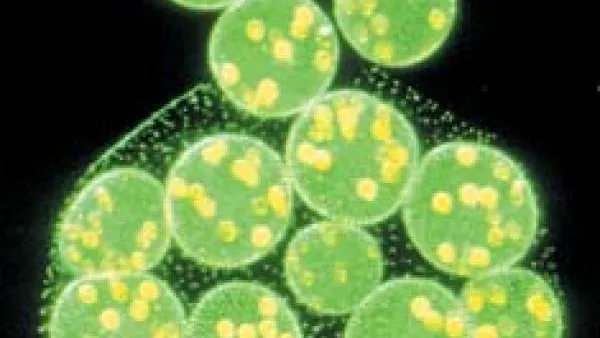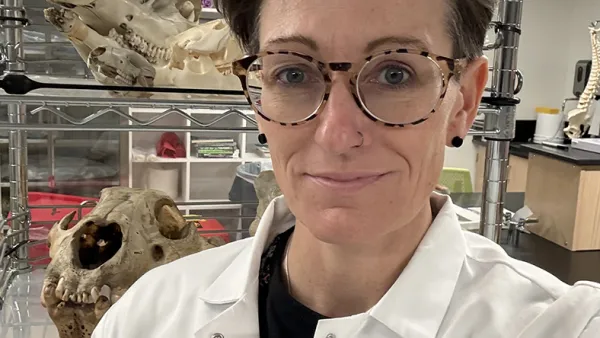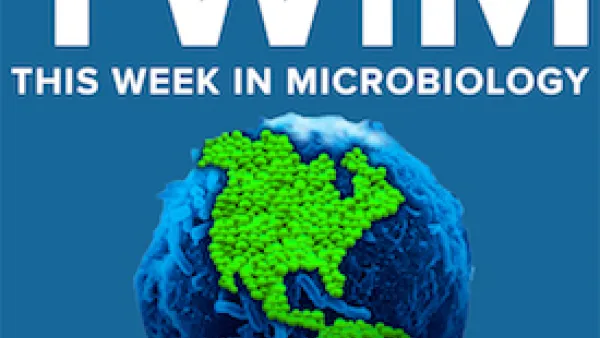Epigenetics is, generally, the study of heritable phenotype changes in organisms which are attributable to modifications of gene expression rather than alteration of the genetic code itself. While working in Dr. Sarah Elgin’s lab my freshman and sophomore years, I learned that multicellular organisms are able to manipulate expression of a given locus through epigenetic modification. As my knowledge of epigenetic regulation and developmental biology grew, I became interested in cancer biology. I was fascinated by the fact that cancer cells hijack normally repressed developmental genes and pathways via epigenetic remodeling. While most news coverage of this phenomenon may center around seemingly shocking discoveries of hair cells, or nascent teeth, in biopsied tumors, cancer cells regularly rely on such remodeling to gain reproductive advantages or hide from the immune system.
This past fall I joined the Chheda lab at the School of Medicine. The Chheda Lab is primarily interested in identifying and characterizing the genetic and epigenetic events which induce and maintain tumors. The lab focuses on glioblastoma (GBM), the most common and aggressive brain tumor. Prognoses for GBM are poor, as a subset of tumor cells, GBM stem cells (GSCs), are resistant to current therapies. Understanding the mechanisms by which the cancer stem cell state is maintained in these tumors may yield insights into developing differentiation therapies to address this issue.
In the Chheda lab, I am working on a project to characterize the specific domains responsible for the protein-protein interaction between ZFHX4 and CHD4. ZFHX4 is a large (394 kDa) transcription factor and CHD4 is known to be a major component of the nucleosome remodeling and deacetylase (NuRD) Complex. Previous work by Dr. Chheda demonstrated that ZFHX4 and CHD4 colocalize in GSCs; we believe that ZFHX4 associates with CHD4 in these cells and acts as a master regulator of CHD4, maintaining the cancer stem cell state.
My project uses molecular biology and biochemical techniques to understand the structure and function of ZFHX4. In order to better characterize the ZFHX4-CHD4 interaction, the group used deletion mutants to identify a putative region of the protein required for the ZFHX4-CHD4 association. I am subcloning this region of interest and generating mutants to confirm its interaction with CHD4, testing whether it acts as dominant negative allele. I will be transfecting mammalian cells and performing immunoblotting and functional assays. Identifying the domain(s) which mediate the ZFHX4-CHD4 interaction will improve our understanding of the mechanism by which ZFHX4 regulates CHD4 and NuRD complex activity.
Once we have identified the domains responsible for ZFHX4-CHD4 association we will be able to test whether this association is necessary for maintenance of the cancer stem cell state. Eventually, using CRISPR to delete identified domains in the endogenous copy of ZFHX4 in GSCs, we will be able to confirm this dependency, potentially yielding a crucial insight for the development of GSC-targeting therapies.
My work in the Chheda lab as a Bio500 independent research student has given me a fantastic opportunity to explore my interests at the intersection of epigenetics and cancer biology. Additionally, the ability to conduct independent research with the exceptional support which my PI (Dr. Chheda) and bench mentor (Dr. Galdieri) provide has enabled me to learn new techniques and think critically about experimental design and analysis. The hands-on application and extension of classroom concepts in a lab setting has been extremely valuable to my learning process. Through my research experiences, I have learned a great deal about translational research and am now considering a career as a physician-scientist.



